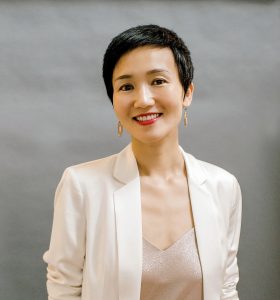
Bias and discrimination come in all forms and at all ages. What matters is how we take the lessons we learn, the tribulations we face and become a voice for change. Being the daughter of a divorcee provides a different lens to the world. Particularly if the divorcee is a single mom in the Deep South in the 1980’s.
I experienced slights which I recognize now as inequality and exclusion – all before exiting elementary school. I was different than the kids from a two-parent household and to some adults, being the daughter of a divorcee meant I was somehow less than my classmates. I was treated differently and at times poorly. No parent sends their child off to school expecting them to learn a lesson of feeling unworthy.
My parents divorced when I was three, and as a result my mother chose to give up her dream of a legal profession. Instead, she worked a job that allowed her to earn overtime so I could live in a top school district and a safe suburb neighborhood. Sometimes that meant we lived paycheck-to-paycheck eating tuna fish and canned green beans most night for dinner. My mother wanted a better future for me and actively pursued it even though it created hardships for her.
Kindergarten was my entry into the world of microaggressions. In kindergarten, returning home with stamp on your hand indicated you were good that day. I rarely came home with a stamp on my hand. The reasons were numerous. For example, I sucked my thumb and was “old enough to know better.” I was told that raising my hand to answer every question was unnecessary, and that other students should have an opportunity to answer – even when mine was the only little arm up in the air.
Answering a question ‘yes’ instead of ‘yes ma’am’ on my first day of school secured me a spot in the principal’s office. I was deemed disrespectful for not using the proper term “ma’am” – and of course, no stamp. In fact, one teacher went as far as denying me medication for chronic migraines because she said I was ‘faking it’ – even though she was provided a doctor’s diagnosis. My classroom para-professional would sneak medicine to me on these occasions.
I felt situational discrimination before I knew how to define it. As a child, I knew when a teacher didn’t like me, but I didn’t understand why – only that they were mean to me. Diversity, equality and inclusion aren’t limited to race, gender and religion. Discrimination occurs in many forms. School activities with parental participation were a source of great anxiety for me. “Muffins with Mom” and “Donuts with Dad” were quite the big deal. I dreaded “Donuts with Dad” because this meant I was sequestered in my classroom as my classmates and their dads went to the cafeteria.
I was hurt and confused. I could not understand why I was being punished and excluded because my father who lived in another state could not be present. In second grade, “Donuts for Dad” time came and that morning I knew my fate was to be the only child left in the classroom. I sat alone when I heard a knock at the classroom door. The para-professional walked over to answer, and there stood my mother in her business suit ready to take her baby to the cafeteria for donuts.
I was the coolest kid in the school that day – the only one with a mom at “Donuts with Dad”. She did not have to wear a fake mustache – the point was made. The other children were ecstatic. I heard repeatedly, “Your mom is so cool!” They were correct, she really is.
These experiences in elementary school were my first lessons in exclusion and inequality. My mom first demonstrated the choice to challenge and to challenge openly. The microaggressions I experienced in a single parent household have helped me in my professional life. I see and understand that single parents are treated differently from those who are part of a family unit.
There are stigmas towards single parents. A married father who wants to leave early a few times a week to coach their child’s tee-ball team is celebrated for being involved. In comparison, a single parent who needs to leave work early to take a child to a dentist appointment, attend a school function or make it to their child’s tee-ball game is met with groans, pushback or whispers about how their job should be the first priority. It’s a double standard to celebrate some parents’ willingness to invest time with their kids while admonishing others. We should salute and help those who are balancing single parenthood.
My childhood affords me the perspective to support single parents in the workplace while understanding their challenges. It is why I was an early adopter of flexible schedules – I know predetermined work hours are not the only times employees can complete tasks.
The burden on some single parents, particularly during the pandemic, is unfathomable as they are forced to make decisions to care for children at home or go to work to support their single-income household. Women are often expected to fall in line. The choice to challenge status quo doesn’t make women difficult, hard to work with, or emotional. It makes us equal.
Life isn’t “Donuts with Dad” and we don’t need to play dress up or acquire an invitation to have a seat at the table any longer. We must challenge the status quo and create a true environment for inclusion – which also means including those in different life situations.






